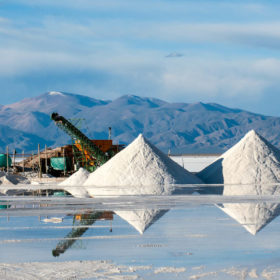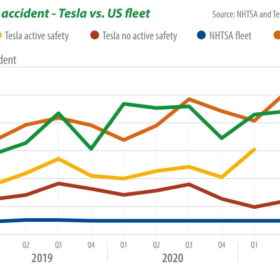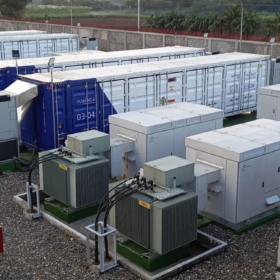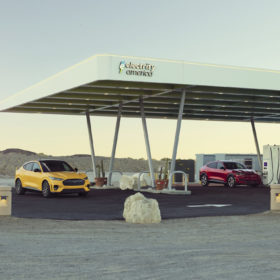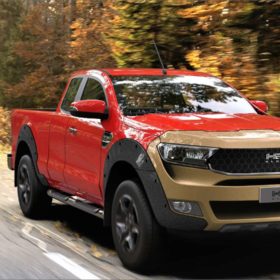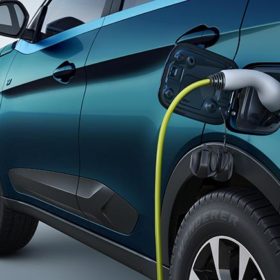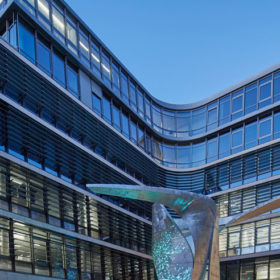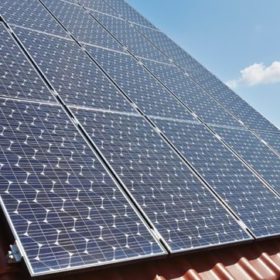Battery metals: How quickly can supply ramp up?
A couple of weeks ago, Goldman Sachs sent shockwaves through battery metals markets, issuing a prediction that cobalt and lithium in particular were due for a sharp price decline in the next two years. But London-based Benchmark Mineral Intelligence is loudly pushing back, outlining its reasons why it believes the call on lithium was wrong. Meanwhile, US analyst Wood Mackenzie says that the battery raw material chain will remain tight, but notes that recycling could help to ease the supply deficit.
The long read: E+V = better vehicles
Electric vehicle batteries are packed with energy, with additional battery density and efficiency working to quell range anxiety for drivers. But with that capability lingers a concern from some that EVs may pose a fire risk and a challenge for first responders in the event of accidents. Professor Ray Wills from Future Smart Strategies bought his first EV in 2012 and argues that in terms of safety, EVs remain an easily superior vehicle, and even the tiny fire risk that exists is an ever-diminishing issue.
IHS Markit: Battery prices won’t fall until 2024
The London-based analyst has published a series of clean tech predictions for the year which also highlighted the rising proportion of sub-5MW solar projects in the global market, and cheaper clean energy financing costs even as panel prices continue to rise.
The long read: Standards to unlock V2G
Mass adoption of electric vehicles presents opportunities for significant battery deployment to support our grid and power our homes. Developing and adopting standards for vehicle-to-grid bidirectional technology is needed to accelerate the path to these opportunities, reports pv magazine USA’s Tim Sylvia.
Electric mobility sector’s budget wishlist
Players in the electric mobility sector call for a reduction in goods and services tax on electric vehicle (EV) batteries, easy access to low-cost finance for EV buyers, and expansion of FAME Scheme subsidy to ICE-to-EV conversion kits. They also expect the government to enhance the manufacturing capacity and financial layout under the production-linked incentive (PLI) scheme for advanced-chemistry battery cells.
India deal to drive Australian hydrogen startup H2X’s global expansion
Australian hydrogen vehicle and fuel cell startup H2X has partnered with Indian automotive parts manufacturer and developer Advik Hi-Tech in a deal which will see the Australian company’s products delivered into India and the wider international market.
Electric vehicles account for 1% of overall vehicles annually sold in India
The government provides subsidy support under the Faster Adoption and Manufacturing of (Hybrid) and Electric Vehicles (FAME) scheme and reduced taxation rates to promote EV uptake in India. Purchase of 3,61,000 EVs with incentives cumulating to about INR 600 crore has been supported to date under the FAME Scheme.
Siemens sees big opportunity in India for its electric mobility solutions
The company expects the first phase of growth in the Indian electric vehicle market coming from commercial vehicles. It has been quick to capitalize on the opportunity by partnering with Switch Mobility, the electric vehicle arm of commercial vehicle major Ashok Leyland.
RattanIndia forays into electric vehicle space
The private-sector power producer is investing an aggregate INR 150-crore amount into Revolt Intellicorp, a next-generation electric mobility company, as part of its strategy to diversify into new business avenues.
India’s case for linking rooftop solar with storage and EVs
A new report says that combining rooftop solar with storage presents an enormous opportunity for India as the combination becomes economically viable soon. It highlights the best practices from Australia—a nation with the world’s highest rooftop solar capacity per person—to serve as a guide in planning for this integration.
